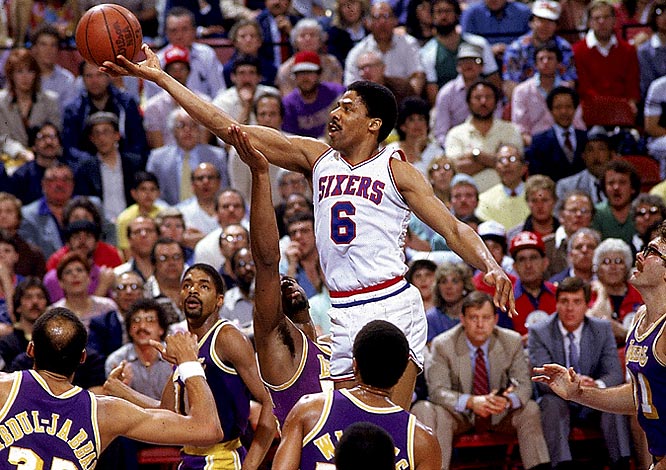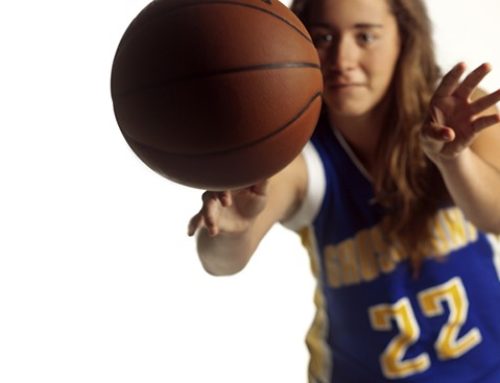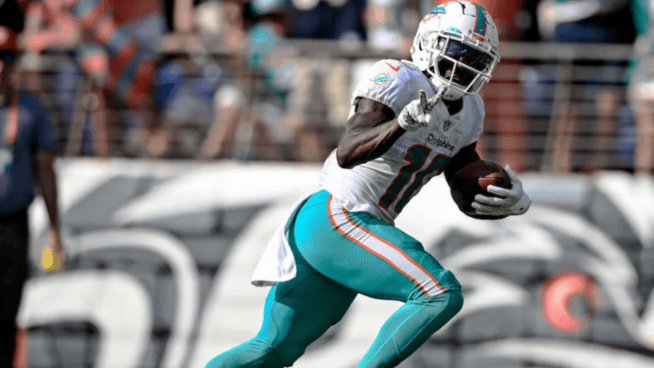Locker Room Quote of the Week: November 22
“I had to spend countless hours, above and beyond the basic time, to try and perfect the fundamentals.”
—Julius Erving, NBA Hall-of-Famer
Talent may be God-given, but development of that talent depends solely on an athlete’s willingness to work. Understand that the work you put in during the preseason will directly affect the season’s outcome. You may have natural talent, but unless you work to improve your skills, the competition will pass you by.
Doing the little things right—like touching the line during Suicide Sprints, or fully focusing on the coach’s instructions—will cultivate your talent and give you an advantage over opponents.
Staying late to work on your weaknesses until they become your strengths; spending time in the film room studying your opponents; or diagramming plays with your coach—all help to produce a successful season instead of an average one. To again quote Julius Erving (a.k.a. Dr. J): “It’s better to stay too long than to leave too soon.”
Although it’s safe to say that nothing was average about the 11-time NBA All-Star, Dr. J’s talents would never have been maximized if he had not also dedicated himself to becoming a well-rounded student of the game.
Erving strove for perfection on both ends of the court. He was best known for creativity when the ball was in his hands, and some of his high-flying dunks remain on NBA highlight reels (check out a sampling here). But Dr. J also gave opponents a clinic on defense. During his 16 years as a pro baller, he amassed 10,525 rebounds and 2,272 steals.
Dedicating his life to the game of basketball, Erving was never satisfied unless he gave his all during games and outworked his teammates in practice.
Erving’s hard work and attention to detail every time he stepped on the hardwood earned him an induction to the NBA Hall of Fame in 1993. Over the course of his career, he shot over 50 percent from the field, averaged 22 points per game, and won an NBA Championship in 1983 with the Philadelphia 76ers.
Source: basketball-plays-and-tips.com
Photo: glidemagazine.com
RECOMMENDED FOR YOU
MOST POPULAR
Locker Room Quote of the Week: November 22
“I had to spend countless hours, above and beyond the basic time, to try and perfect the fundamentals.”
—Julius Erving, NBA Hall-of-Famer
Talent may be God-given, but development of that talent depends solely on an athlete’s willingness to work. Understand that the work you put in during the preseason will directly affect the season’s outcome. You may have natural talent, but unless you work to improve your skills, the competition will pass you by.
Doing the little things right—like touching the line during Suicide Sprints, or fully focusing on the coach’s instructions—will cultivate your talent and give you an advantage over opponents.
Staying late to work on your weaknesses until they become your strengths; spending time in the film room studying your opponents; or diagramming plays with your coach—all help to produce a successful season instead of an average one. To again quote Julius Erving (a.k.a. Dr. J): “It’s better to stay too long than to leave too soon.”
Although it’s safe to say that nothing was average about the 11-time NBA All-Star, Dr. J’s talents would never have been maximized if he had not also dedicated himself to becoming a well-rounded student of the game.
Erving strove for perfection on both ends of the court. He was best known for creativity when the ball was in his hands, and some of his high-flying dunks remain on NBA highlight reels (check out a sampling here). But Dr. J also gave opponents a clinic on defense. During his 16 years as a pro baller, he amassed 10,525 rebounds and 2,272 steals.
Dedicating his life to the game of basketball, Erving was never satisfied unless he gave his all during games and outworked his teammates in practice.
Erving’s hard work and attention to detail every time he stepped on the hardwood earned him an induction to the NBA Hall of Fame in 1993. Over the course of his career, he shot over 50 percent from the field, averaged 22 points per game, and won an NBA Championship in 1983 with the Philadelphia 76ers.
Source: basketball-plays-and-tips.com
Photo: glidemagazine.com











